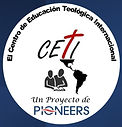Post #2. From Situated Learning to Stories.
- Admin - David Hunter

- 18 abr 2024
- 2 Min. de lectura
The idea of situated learning is more encompassing than the idea of learning by doing Learning is an integral and inseparable aspect of social practice. (Lave 31)
Situated activity involves more than just learning in an activity, but rather looks at the character of knowledge, learning, and meaning related to the nature of the activity in which it is situated. It implies emphasis on comprehensive understanding involving he whole person rather than receiving a body of factual knowledge about the world. (Lave 33)
The first point to consider is that general knowledge only has power in specific circumstances. Generality is often associated with abstract representations, with decontextualization. But abstract representations are meaningless unless they can be made to specific to the situation at hand. Moreover the acquisition or formation of an abstract principle is itself a specific event in specific circumstances. Knowing a general rule by itself in no way assures that any generality it may carry is enabled in the specific circumstances in which it is relevant. In this sense, any “power of abstraction” is thoroughly situated, in the lives of persons and in the culture that makes it possible. On the other hand, the world carries its own structure so that specificity always implies generality (and in this sense generality is not to be assimilated into abstractedness): This is why stories can be so powerful in conveying ideas, often more so than an articulation of the idea itself. (Lave 33-34)
It is important to pause and tie these concepts into our previous research. One of our challenges we looked at last year was related to the “ladder of abstraction” where the top of the latter represented abstract ideas and the bottom of the ladder represented concrete ideas. The problem we faced as educators of the Bible was that a good portion of our theology begins with abstract ideas, which we teach to concrete thinkers who struggle to grasp the general abstraction of thought. The "Situated" part of Situated Learning can be a powerful tool in that it helps ground the abstract idea to the concrete world or our students!
One effective way to do this is through the use of story that can ground the abstract idea to the concrete story. This statement itself thus shows that orality methods are more than just storytelling, but serve as a tool to make the abstract ideas understandable, and in our context, understandable to indigenous thinkers. This is one of the cross-overs where I would like to try to tie Situated Learning, as expressed in Communities of Practice to Character Theology where the amazing abstract concepts of theology can be grounded in the characters of the story.
Take a moment to assess where on the ladder of abstraction is your teaching, and how "situated" is your students learning? How can we better ground abstract concepts? and how can the use of stories or concrete activities serve to help us to do this?


Comentarios